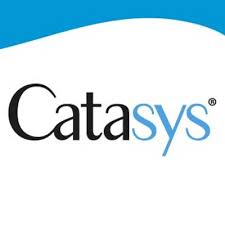LOS ANGELES, Feb. 16, 2017 /PRNewswire/CATS, — Catasys, Inc. (CATS), a provider of proprietary predictive analytics and integrated treatment solutions to health plans, announced today that it has entered into an agreement to expand its OnTrak™-A solution with one of the nation’s leading health plans to Massachusetts. The plan’s eligible commercial and Medicare Advantage members will be covered under OnTrak-A, a 52-week, multi-phase program in which enrolled members receive medical and psychosocial interventions, as well as intensive care coaching.
“We are pleased to expand our OnTrak-A solution into Massachusetts for eligible commercial and Medicare Advantage members. This represents the eighth state in which we have announced the launch of the OnTrak-A program and builds on our existing operation in Massachusetts,” said Rick Anderson, Catasys’ President and COO. “We look forward to improving the health and lives of our enrolled members and their families while reducing overall medical treatment costs for the health plan.”
According to the U.S. Department of Health and Human Services’ National Survey on Drug Use and Health: Mental Health Findings for 2013, approximately 20 million (8.5%) adults in the U.S. met criteria for a substance use disorder (i.e., illicit drug or alcohol dependence or abuse). The National Institute of Mental Health reports anxiety disorders are the most common mental illness in the U.S., affecting 18.1% of the U.S. adult population, or approximately 43 million people age 18 and older. People with an anxiety disorder are three to five times more likely to go to the doctor and six times more likely to be hospitalized for psychiatric disorders than those who do not suffer from anxiety disorders. In addition, in 2013, an estimated 15.7 million U.S. adults aged 18 or older, or 6.7% of all U.S. adults, had at least one major depressive episode in the past year based on a study conducted by the National Survey on Drug Use and Health.
Catasys’ OnTrak program is designed to improve patient health while lowering costs to the insurer for underserved populations in which behavioral health conditions are exacerbating co-existing medical conditions. OnTrak has demonstrated effectiveness with a 50% reduction in health care costs for members enrolled in the program as well as reductions in hospital days, ambulance usage, emergency room visits and more thorough identification, engagement and treatment. Catasys currently operates programs in Florida, Georgia, Illinois, Kansas, Kentucky, Louisiana, Massachusetts, Missouri, New Jersey, North Carolina, Oklahoma, Pennsylvania, South Carolina, Tennessee, Texas, Virginia, West Virginia and Wisconsin.
About Catasys, Inc.
Catasys, Inc. provides big data based analytics and predictive modeling driven behavioral healthcare services to health plans and their members through its OnTrak solution. Catasys’ OnTrak solution–contracted with a growing number of national and regional health plans–is designed to improve member health and, at the same time, lower costs to the insurer for underserved populations where behavioral health conditions cause or exacerbate co-existing medical conditions. The solution utilizes proprietary analytics and proprietary enrollment, engagement and behavioral modification capabilities to assist members who otherwise do not seek care through a patient-centric treatment that integrates evidence-based medical and psychosocial interventions along with care coaching in a 52-week outpatient treatment solution.
OnTrak is currently improving member health and, at the same time, is demonstrating reduced inpatient and emergency room utilization, driving a more than 50 percent reduction in total health insurers’ costs for enrolled members. OnTrak is currently available to members of several leading health plans in Florida, Georgia, Illinois, Kansas, Kentucky, Louisiana, Massachusetts, Missouri, New Jersey, North Carolina, Oklahoma, Pennsylvania, South Carolina, Tennessee, Texas, Virginia, West Virginia and Wisconsin. For further information, please visit catasys.com.
Forward-Looking Statements
Except for statements of historical fact, the matters discussed in this press release are forward-looking and made pursuant to the Safe Harbor provisions of the Private Securities Litigation Reform Act of 1995. These forward-looking statements reflect numerous assumptions and involve a variety of risks and uncertainties, many of which are beyond our control that may cause actual results to differ materially from stated expectations. These risk factors include, among others, changes in regulations or issuance of new regulations or interpretations, limited operating history, our inability to execute our business plan, increase our revenue and achieve profitability, lower than anticipated eligible members under our contracts, our inability to recognize revenue, lack of outcomes and statistically significant formal research studies, difficulty enrolling new and maintaining existing members in our programs, the risk that treatment programs might not be effective, difficulty in developing, exploiting and protecting proprietary technologies, intense competition and substantial regulation in the health care industry, the risks associated with the adequacy of our existing cash resources and our ability to continue as a going concern, our ability to raise additional capital when needed and our liquidity. You are urged to consider statements that include the words “may,” “will,” “would,” “could,” “should,” “believes,” “estimates,” “projects,” “potential,” “expects,” “plan,” “anticipates,” “intends,” “continues,” “forecast,” “designed,” “goal,” or the negative of those words or other comparable words to be uncertain and forward-looking. For a further list and description of the risks and uncertainties we face, please refer to our most recent Securities and Exchange Commission filings which are available on its website at https://www.sec.gov. Such forward-looking statements are current only as of the date they are made, and we assume no obligation to update any forward-looking statements, whether as a result of new information, future events or otherwise, except as required by law.










